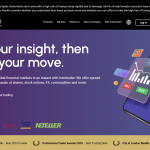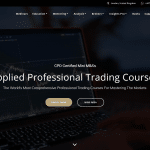Forex brokers are essential intermediaries that connect retail traders with the global foreign exchange market. They provide access to trade currency pairs, platforms for execution, and support services. Understanding forex brokers is crucial for anyone interested in forex trading.
This beginner’s guide covers the basics of forex brokers, how they operate, types, and what to look for when choosing one.
What Is a Forex Broker?
- A company or firm that provides traders access to the forex market
- Facilitates buying and selling of currency pairs
- Offers trading platforms (like MetaTrader 4 or 5)
- Provides leverage, spreads, and order execution
How Forex Brokers Make Money
- Spreads: The difference between the bid and ask price
- Commissions: Fees per trade, especially with ECN brokers
- Swap/Rollover fees: Charged when positions are held overnight
- Inactivity fees: Charged if accounts are dormant
Types of Forex Brokers
1. Dealing Desk (Market Makers)
- Execute trades internally without passing orders to the market
- Provide fixed or variable spreads
- May have conflicts of interest
2. No Dealing Desk (NDD)
- Send orders directly to liquidity providers
- Includes STP (Straight Through Processing) and ECN (Electronic Communication Network) brokers
- Offer tighter spreads and transparent pricing
What to Consider When Choosing a Forex Broker
- Regulation: Ensure broker is licensed by reputable authority (FCA, ASIC, CySEC)
- Trading Costs: Spreads, commissions, and fees
- Trading Platforms: Ease of use, tools, and compatibility
- Leverage and Margin Requirements: Understand the risks of leverage
- Deposit and Withdrawal Methods: Convenience and fees
- Customer Support: Availability and responsiveness
Popular Forex Trading Platforms
- MetaTrader 4 (MT4): Most widely used, supports automated trading
- MetaTrader 5 (MT5): Updated version with more features
- cTrader: Advanced order types and fast execution
- Proprietary Platforms: Developed by brokers for unique features
Key Takeaways
- Forex brokers enable market access and provide critical services
- Understanding broker types and fee structures aids better trading decisions
- Regulation and reputation are vital for safety and trust
- Choose platforms that match your trading style and technical needs
Frequently Asked Questions
What is the role of a forex broker?
To provide traders with access to currency markets, execution services, and trading platforms.
How do forex brokers charge fees?
Via spreads, commissions, swap fees, and sometimes inactivity charges.
What is leverage in forex trading?
Leverage allows controlling a larger position with a smaller deposit but increases risk.
Are all forex brokers regulated?
No, only brokers licensed by financial authorities are regulated.
Can I start trading forex with a small deposit?
Yes, many brokers offer accounts with low minimum deposits.




Leave a Reply
Please log in or register to share your thoughts.